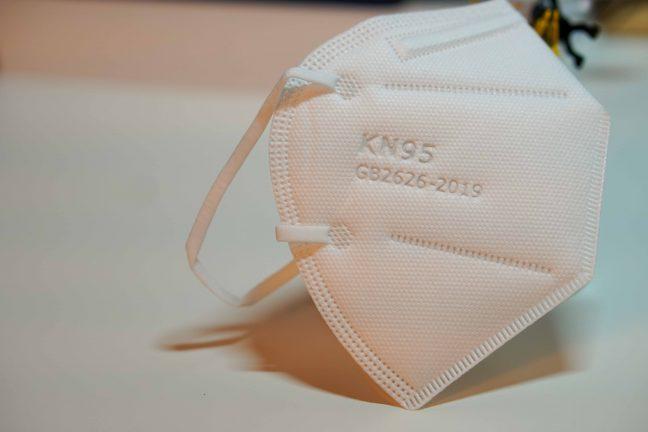University of Wisconsin sophomore Sam Drees is not new to navigating his education through the COVID-19 pandemic. In March of 2020, his senior year at Marinette High School was cut short.
“We thought we’d be back before the end of the year,” Drees said. “They just kept prolonging it and it never came.”
For the upcoming semester at UW, Drees sees both positives and negatives. Learning is a lot easier in person, in his opinion. Instructors are available to answer questions without having to schedule Zoom meetings, Drees explained.
Though classroom instruction is ideal, Drees said there are also stresses that come with in-person learning during the pandemic. As a student living in the dorms, Drees is worried he may not have a place to quarantine.
Drees is not the only student weighing the pros and cons of in-person instruction as the highly contagious omicron continues to sweep the nation and hundreds of people from the UW campus community ask administrators to tighten precautions and move classes online for the first few weeks of instruction.
Despite rising concerns and cases nationwide, UW welcomed students and faculty for an in-person spring semester as planned. In an employee message sent on Jan. 18, the university explained how testing, masking and vaccinations will be used to prevent the spread of the disease.
“Because of the presence of highly effective vaccines, public health agencies in our county, state and nation are pivoting to providing individuals the tools they need to resume most daily activities,” the statement said. “We will embrace that same approach – continuing proven strategies from our fall semester operations and providing new support and resources to employees and students to manage their personal risk.”
UW plans to increase their testing efforts by providing free antigen tests kits for employees and students and asking them to get tested before returning to campus. In addition to testing, masks will be required in campus buildings through March 1.
A town hall meeting held virtually Jan. 21 outlined how the upcoming semester will look. Four expert panelists who have aided COVID-19 policies over the last two years answered questions selected from over 150 questions the community submitted.
University Health Services Associate Executive Director and Director of Operations Carol Griggs said UW quadrupled how many appointments are available for the first two weeks of the semester. Though the university has increased the volume of vaccination appointments, Pfizer will be the only vaccine available. Moderna vaccinations can be found elsewhere in the Madison area, Griggs said.
UW campus changes COVID-19 restrictions for events, face coverings, outdoor physical distancing
UW-Madison Associate Professor of Population Health Sciences and infectious disease epidemiologist Ajay Sethi spoke about the importance of booster shots.
“Where the evidence is pointing is that if you’re boosted, you will have the most protection against severe outcomes of COVID,” Sethi said. “Getting boosted is recommended.”
One area of concern is the ability to track positive cases because the university is not requiring individuals to submit at-home antigen test results to University Health Services, Griggs said. Instead, individuals are asked to report their positive test results to Public Health Madison and Dane County, Griggs advised.
“This is due to the sheer volume of antigen testing and at-home usage,” Griggs said.
The switch to at-home testing provides results quickly, allowing individuals to immediately isolate upon a positive result, but at-home testing can result in inaccurate case numbers, according to University of Minnesota’s Center for Infectious Disease Research and Policy.
Associate Dean of clinical trials Dr. Nasia Safdar said case counts remain a valuable tool in combatting Omicron.
With new COVID-19 variant omicron looming, here’s what you need to know
“Case counts serve a valuable purpose because they can give people an idea,” Safdar said. “Especially with Omicron, it gave people an idea of how rapidly it’s spreading and how contagious it was.”
According to Public Health Madison and Dane County, 104,349 individuals have tested positive for COVID-19 in Dane County as of Jan. 24.
Across Wisconsin, cases are increasing rapidly, with the Wisconsin Department of Health Services reporting 11,628 positive cases on Jan. 20. The state’s cumulative total since the start of the pandemic is now at 1,270,151, according to the Wisconsin Department of Health Services.
But even these high numbers are likely lower than the real count, according to Safdar.
Dane County Board of Health responds to resolution to extend emergency order
“Case counts are an underestimation of the real picture because, of course, people are doing testing at home and those often don’t get counted,” Safdar said.
Even as cases rise, the university believes by following their risk mitigation strategy, in-person classes will continue throughout the semester. Of course, instruction will look different.
“Instructors are going to face this coming semester situation where students are missing class, some circumstances where multiple students in a particular class are missing [and] circumstances where the instructor themselves tests positive or becomes ill,” Vice Provost for Teaching and Learning John Zumbrunnen said. “The best source of support is gonna be supervisors and department leadership.”
Professors are asked to be flexible throughout the semester if one or more students have to miss class. Zumbrunnen explained instructors need to take students at their word. If they report a positive COVID test or feel ill, then they should be treated like someone who would miss a class for a different reason, according to Zumbrunnen.
When asked about the possibility of switching to remote learning, Zumbrunnen said there are currently no plans of making a transition.
Board of Regents selects Milwaukee attorney Jay Rothman as UW System President
“There’s no one best way to deal with these circumstances,” Zumbrunnen said. “So that’s where we pull together and put our heads together and figure out the best path forward.”
Zumbrunnen is excited for the upcoming semester and believes the students will do what is asked of them to reduce the risk of COVID on campus — just like they did the previous semester. Campus leadership will continue to monitor the situation and make adjustments as needed, Zumbrunnen said.




















